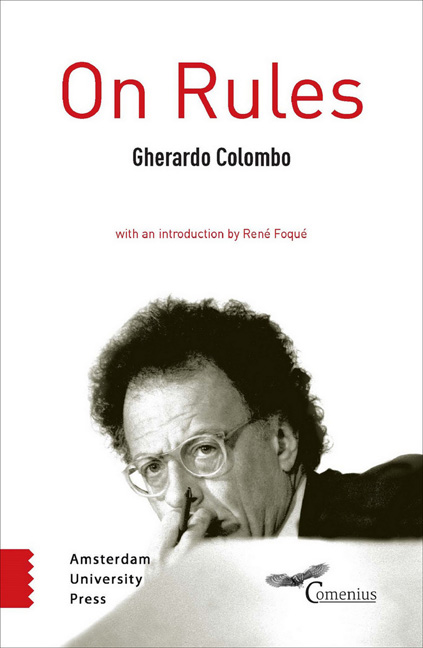Book contents
- Frontmatter
- Introduction: Gherardo Colombo’s Concern for the Democratic State under the Rule of Law: A Work in Progress
- Why?
- 1 An Imaginary Country
- Contents
- Part I The Ambiguities of Justice
- Part II Horizontal Society and Vertical Society
- Part III Towards a Horizontal Society
- Part IV How Do We Get There?
- Conclusion
- Acknowledgments
6 - Law is Just If It is ‘Natural’
Published online by Cambridge University Press: 24 December 2020
- Frontmatter
- Introduction: Gherardo Colombo’s Concern for the Democratic State under the Rule of Law: A Work in Progress
- Why?
- 1 An Imaginary Country
- Contents
- Part I The Ambiguities of Justice
- Part II Horizontal Society and Vertical Society
- Part III Towards a Horizontal Society
- Part IV How Do We Get There?
- Conclusion
- Acknowledgments
Summary
The practice of justifying right with its divine origin still remains undisputed today in some parts of the world, and periodically reasserts itself in our own culture as well. (Just remember the Nazi's explicit appeal to their alleged closeness to god: ‘Gott mit uns’, ‘God is with us’.)
Parallel to this, however, as a more secular vision of society gained ground starting from ancient Greece, people stopped invoking god alone to justify the law, and a point of view developed in which the idea of ‘naturalness’ was central.
This idea was based upon the assumption that all human beings had an inborn, universally shared set of fundamental principles. In other words, it was thought that all people, no matter where they had been conceived or what situation they were put into, had an inner awareness that, in principle, killing is not good, getting possession of other people's things is not good, bearing false witness is not good, and so on.
Divine immanence, however, had not vanished. God was always in the background, functioning as the author of those ‘natural’ principles embedded in the heart of everyone. Yet he had, indeed, moved to the background, and his presence was not strictly necessary to justify law. It would have sufficed to regard those ‘natural’ principles no longer as having been implanted by god into the heart of every person in order to be able to do away with his presence when attempting to confer legitimacy on rules.
According to this line of thought, law is just inasmuch as its content coincides with these innate principles (called ‘natural right’ because they are seen as ‘naturally’ embedded in every person), and becomes all the more unjust as it moves further away from them.
But the passing of time, the evolution of society, and the discovery of other cultures and civilisations sowed doubts about this way of thinking too.
People gradually learned from concrete experience that not everybody in the world shares the same principles, that these can vary – sometimes greatly – from each other, and can even contradict one another.
Arguably, the only universal taboo in all cultures is incest.
- Type
- Chapter
- Information
- On Rules , pp. 43 - 44Publisher: Amsterdam University PressPrint publication year: 2016

